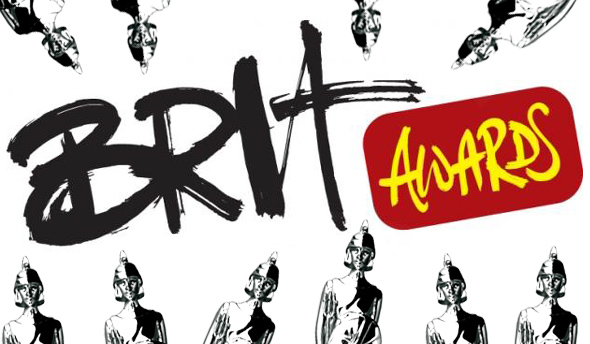From Madonna taking a tumble to Adele flipping the bird during her acceptance speech, The Brit Awards always affords more than its fair share of entertainment, mishaps and unpredictability.
The inaugural Awards in 1977 only became a calendar event five years later. Initially broadcast live this was curtailed under increasing criticism for being too unrehearsed (cue Mick Fleetwood and Samantha Fox). Recently however the live, un-cut version has been revived, the impromptu and the haphazard by now regarded as a quaint attraction rather than a liability. The first broadcasting, in black and white, included The Beatles winning Best British Album and Best British Group and Cliff Richard winning Best British Male. On the 24th of February 2016 the 36th edition of the Brit Awards took place. This year’s ceremony comprising of Adele, Coldplay (who took Best British band) and an emotionally poignant tribute to David Bowie, also witnessed an unintentional Michael Jackson tribute act going by the name of The Weeknd.

The near-hysteria surrounding the presence of international stars such as Rihanna, Drake and Justin Bieber, begs the question do we need a global perspective to celebrate our indigenous talent? With the likes of Jack Garrett, James Bay and Catfish & The Bottlemen all earning awards it seems somewhat unnecessary to reel in international stars when homage (and air time) should be acknowledging new home-grown talent.
“It’s all got a bit too slick now, it’s treated with a bit too much respect if you ask me. It is but a TV show with a few awards carved up and spread around.” Not only is he a talented musician but Noel Gallagher’s witty observations are generally right. The Brit’s have become unarguably more polished over the years. Attention to detail in terms of organisation and presentation merit a far higher priority. The a-list appearances customarily provide an embarrassing moment or two, but we wouldn’t like the Awards to forego all of its charm now, would we?
The main transition from rustic glamour to somewhat commercial vanity is to some degree represented in the scale of venues used to host the event. The 1977 Brits was held at Wembley Conference Centre accommodating up to 2200 guests. 9 years on, in 1996, the event moved to Earls Court Exhibition Centre (capacity 20,000), marking the well-documented era of the Oasis/Blur Britpop feud.
In 2011, the Event took up residence at the O2 Arena, also boasting a 20,000 capacity -and higher in prestige. The Brit Awards continue to be broadcast from this venue, seemingly with an unending dosage of glitz, glamour (and this year replete with flamethrowers!) Undoubtedly the Event continues to over-indulge in multiple forms, amplifying not only the level of publicity but also stylising every aspect of the ceremony.

Clearly music has changed over the years. Genres have emerged, evolved and mashed together. As more and more subgenres unlock new artists are emerging, reinventing the likes of grime, country rock, acid jazz and disco. Just as the music industry has rapidly progressed, so has the variety of performers at the BRIT awards. In February of 1992, dance/art band ‘The KFL’ opened the ceremony. Instead of their usual rap/rave stage show they join forces with grindcore metal band ‘Extreme Noise Terror’ playing a death metal version of the KFL hit ‘3am Eternal’, climaxing with a machine gun firing blanks over the heads of the stunned audience. Bands’ cashing in on scandalous live acts is now far less anticipated, particularly at prestigious award ceremonies. Performing ‘Hymn for the Weekend’, Coldplay opened up the 2016 edition of the show, with their tales of getting drunk and high alongside a sunset background and flower garlands decorating the stage. A somewhat delicate approach to the opening of the show, paralleled with said previous death metal travesties. Later on in the ceremony Chris Martin used his speech to voice support for Syrian refugees, winning a lot of respect from many viewers. Coldplay fan or not the frontman deserves some admiration for continuing to raise awareness about this ongoing issue.
Undeniably, the BRITS remain consistent in delivering some of the most memorable incidences on British television. Michael Jackson’s 1996 performance of ‘Earth Song’ presented him as a bizarre Christ-like figure which many onlookers including Jarvis Cocker felt was too self-indulgent for the ceremony. Pulp’s frontman invaded the stage presenting his bare behind in an attempt to protest against Jacko and the ‘American sails’ he intended to fly that evening. Queen of Pop, Madonna, took a legendary tumble in 2015 after her cape failed to untie itself dragging her down a flight of stairs mid-performance. Luckily she escaped unharmed and carried on with her performance; it’s debatable whether or not this excuses the mass quantity of ‘memes’ created online. Nonetheless, it certainly added a gripping element to her routine. Only recently at the 2016 Brit Awards Icelandic singer Björk won ‘Best International Female Solo Artist’. However, back in 1998, after scoring the same award, she gave a very distinct acceptance speech firstly by leaping onto the stage and then uttering the words ‘I am grateful… grapefruit’. Short but sweet, alike the singer herself.
Even with a new image and location the BRIT awards still remains rife with controversy. Many aspects of the ceremony have changed over the time, just like the music industry has. Nonetheless the combination of live broadcasting, vast quantities of alcohol and highly spirited pop stars makes a heady mix for unforgettable bust-ups and a series of very entertaining endeavors.

